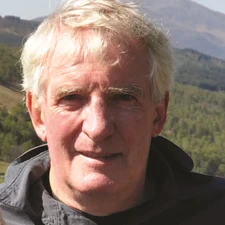Chris J. Hawkesworth

The 2014 Robert Wilhelm Bunsen Medal is awarded to Chris J. Hawkesworth for his outstanding contributions to a vast spectrum of geochemical subjects, most notably his work on the history and evolution of the continental crust.
Chris J. Hawkesworth is awarded the 2014 Robert Wilhelm Bunsen Medal award for his major contributions to the field of geochemistry. He has addressed and answered an enormous range of geological questions using the powerful tools of trace element and particularly isotope geochemistry. His diverse interests have ranged from dating major archaeological episodes, tracing brain disease with zinc isotopes and monitoring the consequences of a Snowball Earth using isotopes of calcium. His chief focus, however, has been on global petrological problems, where his most prominent contributions have furthered our understanding of the history and evolution of the continents. He has elucidated the genesis of key crustal components ranging from arc lavas, to continental flood basalts and granites, both ancient and modern. He has documented the development and modification of the mantle lithosphere on which the continents rest and he has unravelled the long-standing tangle of growth and cannibalism in models of crustal growth. In each of these subjects, Hawksworth has made seminal advances at various stages of his career.
Hawksworth has often been at the forefront of the development of new techniques to solve old problems. He was one of the first to recognise and exploit the potential of neodymium isotopes to trace the rate and mechanism of crust formation. He used mass-spectrometric analysis of uranium-series disequilibrium to investigate rates and styles of processes in subduction zones and osmium isotopes to explore the continental lithospheric mantle. Most recently, he has harnessed the power of laser ablation hafnium analyses in zircons to reconstruct the evolution of the continental crust.
Hawksworth has been central in the creation and development of three influential isotope laboratories, at the Open University, Bristol and St Andrews. These labs have trained and welcomed a huge number of researchers who are now active throughout the world. He has long served the Earth science community though notable editorships, participation in many international review panels and the Council of the European Union of Geosciences (now EGU) from 1997–2003. In recognition not only of his scientific contributions, but also his leadership and promotion of European geosciences, Hawksworth fully merits receipt of the Bunsen medal.
